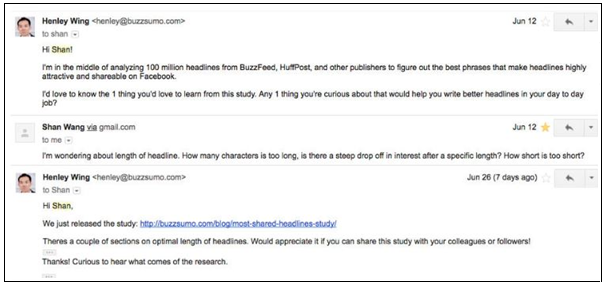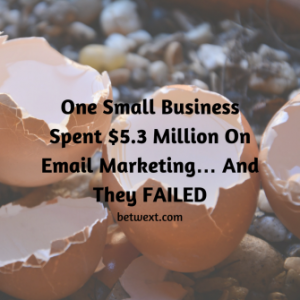— October 15, 2017
The world of business is undergoing massive transformations.
Being a business graduate, I was used to studying about companies that were big corporate giants.
Our classes in marketing would be all about how these companies came up with clever innovative campaigns that were wildly successful.
Their target market encompassed nations on a geographic scale and their consumers were numbered in millions.
That would always make me think about how startup companies, that didn’t have access to such resources, would go about their marketing efforts.
Corporations have massive amounts of capital and the necessary human resources to plan and execute such massive campaigns. Companies that start with little money cannot afford to do so.
Today corporations that are successful, still have that overarching reach. However, that reach is now reaching boundaries, rather than being limitless, as was previously thought.
With the advent of social media and inexpensive methods of marketing that still have the capability of reaching a sizeable number of users, startup companies are now being able to successfully create niche markets for their product /services.
Companies are now able to become viral sensations by being innovative in their marketing strategies, without spending much in the way of capital.
One of the ways in which they are able to do this is through the effective use of influencer marketing.
Before the internet grew into what it currently is, a majority of startup companies could not afford to go for influencer marketing as a marketing tool.
As I said, big brands command a budget and a reputation that enables them to reach out to celebrities and have them endorse their brand or persuade them to become brand ambassadors.
Startup companies simply do not have the resources to do this. Social media has completely changed this.
The title of “influencer” is no longer restricted to celebrities. An influencer can be a blogger with a huge view and share count or somebody on Instagram who posts weird and wacky pictures of their cats.
Influencers have pockets or niches of people who follow them, and collectively, that audience becomes quite significant in size.
So influencer marketing can be extremely useful for creating organic lead generation for startups.
Buzzsumo.com is an excellent example of a company that has successfully been able to use influencer marketing to promote itself.
The idea behind the service was one of the most successful small business ideas that took off.
The company is a very successful Software-As-A-Service (‘Saas’) venture, and allows any user to quickly find content that is popular online, in terms of a number of search criteria.
In this article, the CEO of the company Steve Rayson talks about how they reached out to influencers.
The cornerstone of Steve’s strategy is to understand how Buzzsumo can genuinely help the people they are reaching out to.
He talks about this in an interview with Dan Shure, on the website of the popular SEO consulting company, Evolving SEO.
The article gives an excellent example of how the company contacted Shan at Nieman Labs.
The research the company did was of direct value to Nieman Labs. The company sent 20 such emails to a number of journalists, incorporated the feedback into the research they were conducting and then further asked content influencers for their opinion.
They included their posts in the final publication. As a result, the company was mentioned in Nieman Labs, Forbes, MarketingProfs and Inc. Magazine.
In a blog post on Tomoson, which is a platform for influencer marketing, current statistics show that 59 percent of marketing companies intend to increase their budgets for implementing an influencer strategy.
But how can you start doing this if your business is a startup business?
1. Keep an open mind
When you are attempting to brainstorm creative ideas for an influencer marketing strategy, it helps to think of an influencer as a brand in himself/herself.
People do not follow influencers on the basis of products or services that they are endorsing.
It is essentially the personality and reputation of the influencer that they are drawn to.
So go beyond the more obvious associations that an influencer may have with your company.
This ensures that you will be able to reach customers that may not even be part of your target market.
For example, sports products are usually promoted by celebrities in sports. However, The Hideaway Club which is an investment fund for luxury properties selected Tim Henman to be their influencer.
The company gauged his reputation as a well-liked and sophisticated person and associated luxury with it quite successfully.
2. Define your values
If you want to use influencer marketing effectively, you need to clearly define the values that your company stands for.
When your company initially starts a business, it is understandable not to address things that are not an immediate priority.
This includes refining your brand in terms of brand ethics, tone of voice and belief system.
However, knowing and following your core company values is essential to be able to effectively employ influencer marketing.
An example of such a mismatch is the relationship that Sainsbury had with popular food blogger Jack Monroe.
Jack Monroe became extremely popular on the Internet by making a blog in which she talked about her experiences of living with financial constraints and providing recipes for food that were extremely cost effective.
Now, on the face of it, this seems like a perfect match for Sainsbury. However, Jack had very controversial political views which eventually led to Sainsbury distancing itself from Jack, hence showing that there was a difference between the values that the company stood for and the values that Jack espoused.
3. Research influencer marketing strategies followed by other companies
There is a plethora of companies that have successfully used influencer marketing to establish their brands.
These companies range from large corporations to small startups. The following are excellent examples of companies that have successfully used influencer marketing to great advantage.
a. Glossier
This beauty products startup company, which is based in Manhattan, owes a great deal of their success to a rapidly expanding network of fans and micro influencers. Rather than invest in celebrities for promotion, the company relies on “regular women” to promote the brand.
c. Naked Juice
Naked Juice produces bottled smoothies and is steadily making its way into the fashion, beauty and health spaces on Instagram.
The brand has very successfully used influencers to promote itself. For example, Kate La Vie is a lifestyle blogger who posts snapshots about daily choices of outfit and beauty products used. This particular post includes a bottle of Naked Juice strategically added.
Conclusion
Influencer marketing is one of the most cost-effective ways a startup business can use for promoting itself.
Users on the internet are becoming more and more frustrated with pop-ups and traditional methods of promotion.
Amidst this sea of promotion, they are far more likely to take the advice of influencers that they follow.
Influencers can easily promote the company amongst their established networks and help in rapidly establishing a target market for the company.
Companies can avoid the cost of going to a marketing agency and easily reach out to influencers directly.
And, if you enjoyed reading this article or learned something new, I’d appreciate your feedback: either by a simple share or by writing your thoughts in the comment box below.
This article originally appeared on LinkedIn.com
Business & Finance Articles on Business 2 Community
(74)









